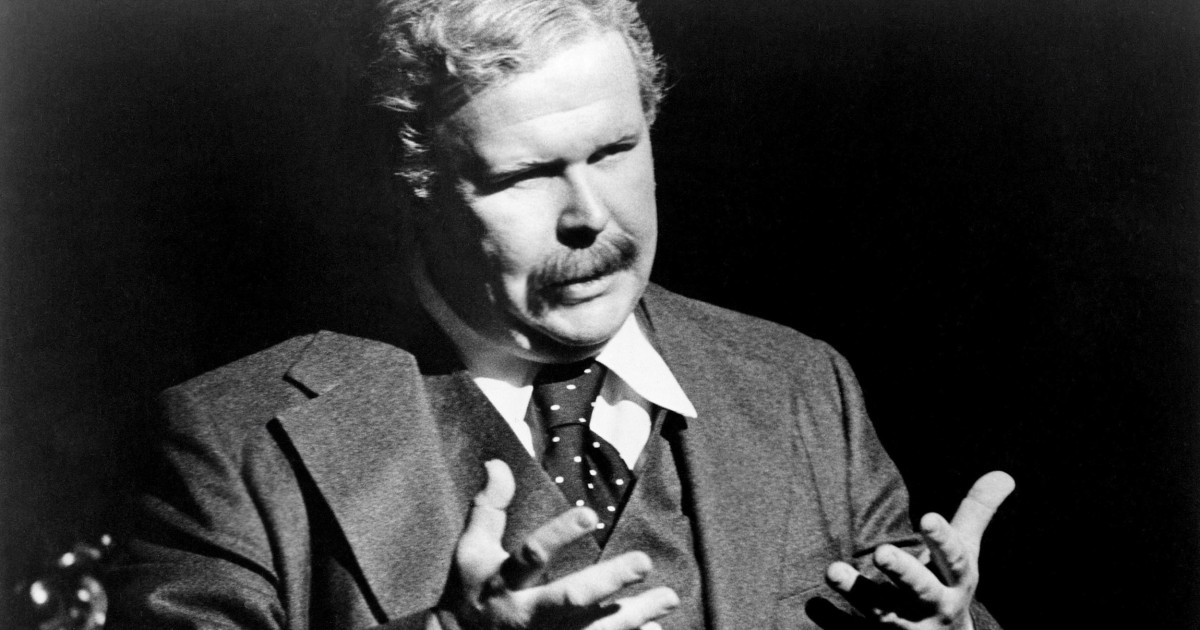
The term "character actor" lacks a precise definition. You could use it to describe performers who play stock types: the absent-minded professor, the jock. It works as shorthand for supporting players who are instantly recognizable — that guy! — but not exactly famous. And yet it also applies to actors who lose themselves in any role: the chameleons of Hollywood.
In a career that spanned more than four decades, Ned Beatty, who died Sunday at 83, richly embodied each of these provisional definitions, assembling an impressive body of work rivaling that of any marquee star. He often played Southern "schnooks," as he called them, but he took on many other guises: pathetic and menacing, whip-smart and oafish — sometimes all at once.
"Stars never want to throw the audience a curveball," Beatty told The New York Times in 1977, "but my great joy is throwing curveballs."
Beatty electrified moviegoers with his range and depth. He was indelible as a cheerful outdoorsman sexually assaulted by backwoods sadists in "Deliverance" (1972); a neglectful husband in Robert Altman’s panoramic "Nashville" (1975); an evasive Miami district attorney in "All the President’s Men" (1976); a dim henchman in the first "Superman" (1978).
"Network" (1976), Sidney Lumet and Paddy Chayefsky’s lacerating satire of media excess and corporate chicanery, provides one of the most astonishing examples of Beatty’s gifts.
He shows up around the 90-minute mark as Arthur Jensen, a burly executive with a walrus mustache and a pocket watch stuffed in his three-piece suit, to deliver a fiery sermon about the harsh realities of international capitalism for the deranged anchorman Howard Beale (Peter Finch).
"You have meddled with the primal forces of nature, and you will atone," Jensen hollers at Beale from the end of a long conference table in a lavish boardroom. The curtains have been drawn and the lights have been dimmed; Beatty’s ruddy face is illuminated by the glow of green banker lamps.
The soliloquy is terrifying but hilarious, theatrically over-the-top but essentially truthful. Beatty, with roughly six minutes of screen time, all but forces viewers to sit up straight and lean forward in their seats. In a movie filled to the brim with scorching monologues, Beatty virtually leaps off the screen with rhetorical ferocity. He is unforgettable.
He was nominated for an Oscar for "Network," his first and only recognition at the Academy Awards. He later told People magazine that he felt fortunate just to have been asked to appear in the movie: "If I’d been casting that role, I’d have been the last person I’d have thought of. Basically, I look like a used-car dealer."
It might be an understatement to say that Beatty made the most of secondary roles or what amounted to glorified cameos in modern classics. He was so technically skilled that he often managed to eloquently capture the spirit of a movie with nothing more than a gesture — a nervous glance, a Cheshire cat grin, a swaggering stance.
"He has been outshining some of Hollywood's most pampered, high‐salaried stars by creating complicated, full‐bodied characters with swift, subtle strokes," The Times wrote in 1977.
Elaine May’s "Mikey and Nicky" (1976) centers on two small-time gangsters (John Cassavetes and Peter Falk), but Beatty’s dyspeptic hitman ably captures the movie’s atmosphere of sweaty desperation and late-night dread. Beatty’s character is not mentioned in the title, but his minutes on screen feel like paranoid miniatures of the movie itself.
In the 1970s, an era when even unconventional actors (Al Pacino, Robert De Niro, Elliot Gould) were offered top roles in major films, Beatty took a decidedly different route.
"Being a star cuts down your effectiveness as an actor, because you become an identifiable part of a product and somewhat predictable," Beatty told The Times in 1977. "You have to mind your p’s and q’s and nurture your fans. But I like to surprise the audience, to do the unexpected."
He was not a leading man by any stretch. It did not matter in the least. He was the reliable utility player and the quiet MVP, the anchor and the ballast, the journeyman artist who was just as ambitious as the gallery of household names with whom he shared the screen.
He was a character actor.
https://ift.tt/2SyH2pA
Entertainment
Bagikan Berita Ini














0 Response to "Ned Beatty was a superlative character actor. He savored the job. - NBC News"
Post a Comment